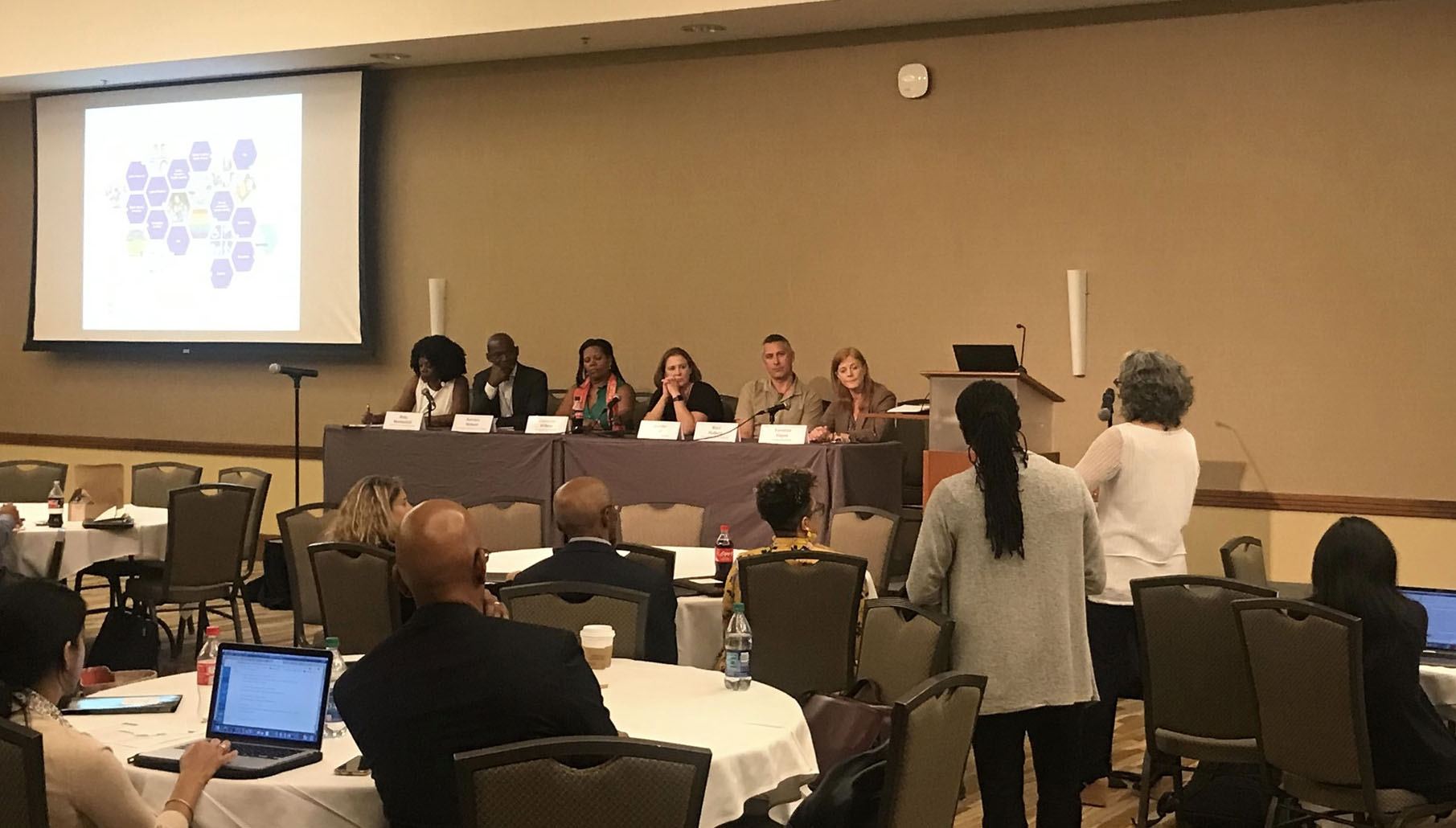Illinois, NIH host workshop on equity and diversity in genomic data science
The study of human genomics is inextricably linked to larger societal practices: how well diversity is represented in those who direct and conduct scientific research, how we balance data access with individual privacy, and the ways we group and describe both healthy and ill people. This September, the Carl R. Woese Institute for Genomic Biology (IGB) had the privilege of collaborating with the National Human Genome Research Institute (NHGRI) to host a workshop examining these issues.

The workshop, “Equity, Diversity, and Genomic Data Science,” was held September 3–5 and featured presentations and discussions offered by University of Illinois faculty and invited experts from institutions across the U.S. Attendees were drawn from academia, industry, government, professional societies, advocacy groups, community-based organizations, and education groups. During the workshop, those present worked together to draft recommendations for the NHGRI’s 2020 strategic plan, which is currently under development.
Carla Easter, chief of the Education and Community Involvement Branch at NHGRI, coordinated the workshop. In a written description of the workshop’s goals, she noted the “strong consensus is that there is a need for honest open discussion about the acquisition and application of genomics and especially, genomic data” as motivation to create a forum to discuss issues of equity and diversity in genomic medical research.
Workshop presenters represented many academic backgrounds, including medical genetics, computer science, statistics, anthropology, and artificial intelligence. An important emphasis of the workshop was the dependence of the scientific validity of genomic science on responsiveness to social context.
“Genomics research is conducted in a very rigid manner that does not allow for community feedback or what community members feel are their problems (health, justice or otherwise),” said Ripan Malhi (CGRH, GNDP, IGOH, RBTE), an associate professor of anthropology who presented at the workshop. “Genomic research is conducted using concepts that trace back to colonial ideas that are not representative of human diversity we see in the world today.” Malhi co-facilitates the annual Summer internship for INdigenous peoples in Genomics (SING) Workshop, which aims to empower indigenous people with knowledge and access that enables them to determine best practices surrounding genomic science in indigenous communities.
Malhi also pointed to gender bias and other diversity issues within STEM pipelines, and in genomic research in particular, as issues to be addressed within the workshop. Conclusions from the workshop will be reflected in the NHGRI’s updated strategic plan, anticipated to be published in October 2020 to coincide with the 30th anniversary of the inception of the Human Genome Project.
